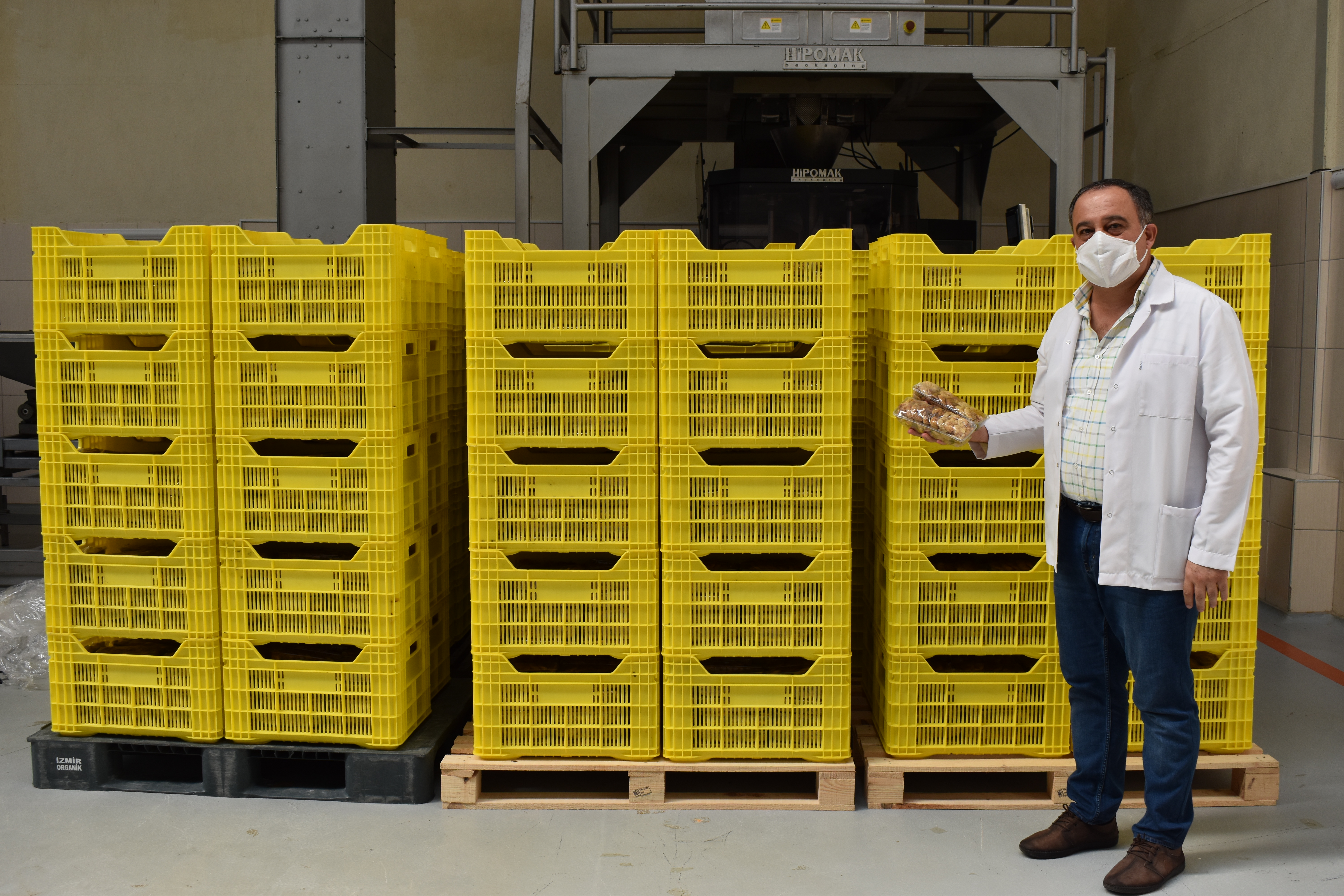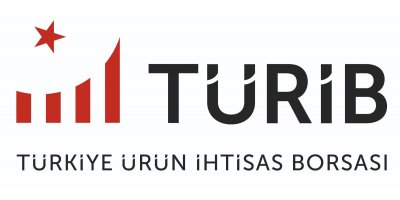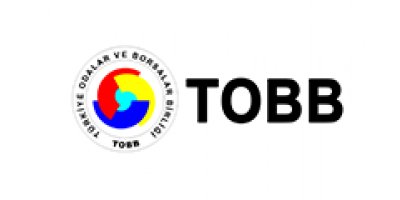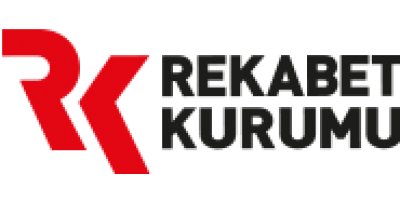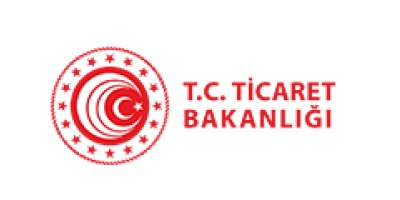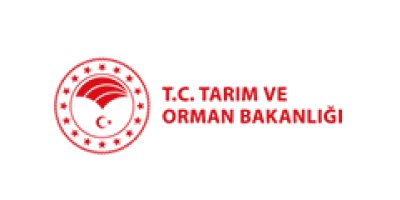28 December 2025 Sunday
Issue 29: The Export Journey of Dried Figs
We spoke with Kazım Günaydın, a member of the Aydın Commodity Exchange Board and the founder of Günaydınlar Ltd. Şti., which operates in the production and export of dried fruits, about the dried fig sector.
Mr. Kazım, could you please talk about your work in the production and export of dried fruits, which hold significant importance in the country's economy?
We started in the fig trade in 1989 under the name Kazım Günaydın. Until 2007, we supplied figs to exporting companies in this sector. In 2007, we began exporting figs to European countries for the first time. After 2009, we established Günaydınlar Organic, creating a new company. Then, in 2013, we founded Miray İmpeks, and now we continue to exist in the sector as a group of companies.
In our 32-year journey with figs, nearly 20 years have been spent in fig trading, with the remaining years in exports. Of course, we started with exporting figs, but we have since diversified our offerings. Now, we also deal in dried apricots, dried grapes, pine nuts, pistachios, and hazelnuts.
I am also a fig farmer myself. I come from the soil of figs. In this regard, as a local of Aydın, we want to contribute more and be beneficial to the fig industry.
When it comes to dried fruit production, the first thing that comes to mind is Aydın figs in the Aegean region. What is the market share of Aydın figs in the global market?
Turkey produces 70% of the figs in the world. According to the latest data from the Turkish Statistical Institute (TÜİK), 68% of these are produced in Aydın. The highest quality and finest figs are grown in the Büyük Menderes Basin, which is primarily in our region. A portion is also grown in İzmir's Küçük Menderes Basin.
Moreover, figs are one of the first products for which we received a geographical indication. This has given us momentum in the European Union and around the world, especially in the East-West bloc countries. At the very least, with these geographical indications, we have taken ownership of our product. As you know, there are alternative countries producing figs, such as Greece, Spain, Iran, and Uzbekistan, as well as China and Syria. However, the best and highest quality figs are produced in Aydın.
In addition to maintaining this quality, we must increase our market share and present our products better. We can overcome market share challenges in this way. Selling a large quantity of products is not what matters; what is important is selling more beautiful, higher quality, branded products in smaller packages. Only then can we increase our added value and the money entering our country. There is a significant difference between selling figs in bulk and selling them packaged. These differences are important in terms of price, production, and the development of the company itself.
What Are the Expectations for Fig Yield This Season in Aydın? How Do You Evaluate This Yield?
We held our new season opening for dried figs with the attendance of Deputy Minister of Agriculture and Forestry, Mehmet Hadi Tunç, hosted by the Aydın Commodity Exchange. Our Deputy Minister announced that the fig yield is expected to be 85,585 tons. Compared to last year's yield, there is approximately a 4.5% to 5% decrease due to seasonal and climatic weather conditions. Currently, the fig prices are looking quite good from the perspective of the producers. I believe this trend will continue.
How Has the Sector in Aydın Welcomed the New Season? From the Perspective of Both Producers and Traders, How Are They Experiencing This Season and What Are Their Expectations for the Sector?
Currently, both producers and traders in the sector find the prices quite favorable. However, from this point on, exporters and stakeholders in the dried fruit sector have significant responsibilities. We need to sell this product at the determined price and make it sustainable. If we can't sustain it, the fluctuations will harm us in terms of the foreign currency we bring in. Additionally, this situation negatively affects both exporters and traders, as well as the producers. In short, we want the prices to be sustainable. Although there is a slight quality issue with the figs, the low aflatoxin levels in smaller figs seem to support this aspect. If we conduct our presentations well as a business, I believe that both the production of figs and our exports will increase, satisfying consumer firms and end consumers.
In February 2020, the Aydın Commodity Exchange Laid the Foundations for the Aydın Renewable Energy-Based Cold Storage Facility. How Will This Cold Storage Facility Impact Agricultural Trade in Aydın?
As the Aydın Commodity Exchange, we have been working on this issue for seven years. We thank our stakeholder chambers, bureaucrats, and ministers who have supported us during this process. The Aydın Renewable Energy-Based Cold Storage Facility established by the Aydın Commodity Exchange is the first of its kind in Aydın. Previously, there was no publicly accessible cold storage facility where people could store their products. There were more commercial cold storage facilities aimed at providing self-sufficiency for companies.
The Aydın Renewable Energy-Based Cold Storage Facility will be open to the public. We established this facility primarily to improve the quality of figs. It will primarily serve our producers and farmers, as well as members of the Aydın Commodity Exchange involved in fig production. We will prioritize them. However, ultimately, the cold storage facility will also serve other sectors. Our biggest advantage is that it is powered by renewable solar energy, which we believe will allow for price competitiveness. We expect that the prices of our facility will not be the same as those of other cold storage facilities, which will, in turn, support our producers and members.
To What Extent Does the Aflatoxin Danger in Dried Figs Affect Exports? What Are the Reporting Numbers Related to Aflatoxin in Dried Figs Exported by Turkey?
The aflatoxin issue entered our literature with the Chernobyl disaster in 1987, starting with hazelnuts and tea. Later, the EU imposed sanctions regarding aflatoxin, which became a significant concern for us. For years, the Ministry, exporting companies, and exchanges have been fighting this issue. Previously, the limit was 2+2 ppm, and now it is 4+6 ppm, meaning we can say it has increased to 10%. Products exceeding this 10% limit get stuck on export and are returned if they exceed even a slight amount. This is the biggest fear for exporters. Weather conditions play a crucial role in this matter. However, both our farmers and traders, as well as exporters, need to pay close attention to the selection and differentiation of aflatoxin. If these reports increase significantly, the Ministry of Agriculture and Forestry may take a different approach concerning the European Food Codex.
If they are taking 10-20 samples from us today, they might be required to take 50 samples as a sanction tomorrow. In terms of the European Food Codex reporting, this means that if you place 20 tons of goods in a container and they take control samples of 10 tons, this poses a greater risk for us. Therefore, we need to prioritize the issue of aflatoxin. We must prevent figs from coming into contact with the soil and ensure they are not exposed to humid conditions. This needs to be the primary concern of our producers.
Another point I have raised in many meetings is that, for example, tomatoes are sold for 50 kuruş in the fields, while the average price for figs is around 25-30 TL. Yet, we are still transporting them by sack from the fields. We want our farmers, traders, and exporters to be sensitive to this issue because fig exports are a valuable asset. Today, figs account for one-third of Aydın's exports, amounting to 284 million dollars. Therefore, it is our duty to protect this value.
With the Developing Technology, Many R&D Studies Are Being Conducted on Dried Figs. As the Günaydınlar Company, Can You Tell Us About These R&D Efforts? How Much Is the Dried Fig Sector Adapting to Technology?
The dried fig sector is still a labor-intensive industry, with about 30% of it being mechanized and adopting technology. However, we haven't fully achieved this yet. The biggest cost here, when we look at it, is due to the labor involved, which leads to high personnel expenses. We have three different projects regarding this issue. First, we aimed to reduce the packaging size. With the craft packages we call Doybek, we achieved a 20% cost saving. We are trying to sell to our customers in this way. We accomplished this, but we haven't reached the point we desire. My suggestion is that traders, exporting firms, and even operators in this sector should adopt this sales strategy.
Traditionally, there are boxes with capacities of 3, 5, and 10 kilograms. Shifting towards smaller packaged sales will reduce human labor and accelerate the transition to mechanization. When costs decrease, the ability to compete will increase.
Our other project is related to aflatoxin. For this, we commissioned a robot powered by artificial intelligence. A local robot is currently being used for the first time in our company. Our engineer friends from Denizli wrote the software themselves. Currently, we have achieved an 80% - 85% success rate. We conduct toxin control using artificial intelligence.
Lastly, we have started to focus more on laboratory work. We want to improve ourselves in this area. We are looking to acquire a more advanced sulfur device for better measurement in apricots.
We also want to benefit from new systems related to moisture. There are fungi that cause deterioration in figs, apricots, and grapes. We want to enhance our laboratory for this reason.
Mr. Günaydın, we have discussed the dried fig sector, the season, your R&D efforts, and the expectations of the sector. I wish this season to be fruitful for you. Is there anything else you would like to share with us?
Figs are a valuable asset for Aydın. We need to protect this value. From here, I wish for the 2020-2021 fig crop to bring abundance, prosperity, and fruitful gains to our farmers, traders, exporters, and the whole country.







.JPG)
